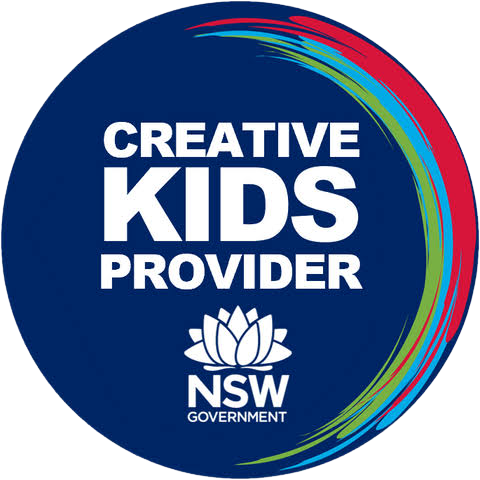Welcome to the Marquis Education Blog
STEM Education: Encouraging Interest and Participation in Science, Technology, Engineering, and Mathematics

In today's rapidly evolving world, the fields of Science, Technology, Engineering, and Mathematics (STEM) play a pivotal role in driving innovation, solving complex challenges, and shaping the future. STEM education not only equips students with crucial skills but also fosters critical thinking, problem-solving, and creativity. At Marquis Education, we understand the significance of STEM education and its impact on the next generation. In this comprehensive blog post, we will delve deep into the world of STEM education, exploring strategies to spark interest, engage students, and nurture their passion for science, technology, engineering, and mathematics. From innovative teaching methods to real-world applications, let's embark on a journey to inspire and empower the STEM leaders of tomorrow.
Why STEM Education Matters: The Power of Building a Strong Foundation
STEM education is more than just learning isolated subjects; it's about fostering a holistic understanding of how these disciplines interconnect and drive progress.
Insight: A strong STEM foundation prepares students for careers in technology, research, engineering, medicine, and more.
Tips:
- Highlight the real-world applications of STEM concepts to show students the impact of their learning.
- Emphasise the role of STEM in solving global challenges like climate change, disease control, and technological advancements.
1. Fostering Early Engagement: The Importance of Curiosity
Cultivating curiosity is key to igniting interest in STEM subjects from a young age.
Insight: Curious minds are more likely to explore and excel in STEM fields due to their inherent desire to learn.
Tips:
- Introduce interactive and hands-on activities that encourage exploration and experimentation.
- Incorporate captivating stories of scientists, engineers, and innovators who made significant contributions to their fields.
2. Incorporating Hands-On Learning: Learning by Doing
Hands-on learning allows students to experience the practical application of STEM concepts, making learning more tangible and memorable.
Insight: Active engagement promotes deeper understanding and retention of STEM principles.
Tips:
- Organise science experiments, coding workshops, and engineering challenges that encourage students to apply theoretical knowledge.
- Collaborate with local industries or professionals to provide students with real-world projects and experiences.
3. Real-World Applications: Bridging Theory and Practice
Connecting classroom learning to real-world scenarios enhances students' understanding and motivates them to pursue STEM careers.
Insight: Students are more likely to engage with STEM subjects when they see their relevance in everyday life.
Tips:
- Showcase case studies and success stories that demonstrate how STEM professionals are making a difference.
- Organise field trips to research labs, manufacturing facilities, or technology companies to expose students to practical applications.
4. Embracing Technology: Harnessing Modern Tools
Incorporating technology into STEM education exposes students to cutting-edge tools and prepares them for the digital age.
Insight: Integrating technology enhances students' skills and prepares them for future STEM careers.
Tips:
- Introduce coding and programming early on to develop computational thinking skills.
- Utilise virtual reality, simulations, and online platforms to make complex concepts more accessible and interactive.
5. Encouraging Critical Thinking: Problem-Solving as a Skill
Problem-solving is at the core of STEM disciplines. Encouraging critical thinking prepares students for challenges in and beyond the classroom.
Insight: Problem-solving skills empower students to tackle complex issues in STEM and in their lives.
Tips:
- Present open-ended questions and scenarios that require creative solutions.
- Encourage students to work in teams to solve real-world problems, fostering collaboration and diverse perspectives.
6. Role Models and Mentorship: Inspiring Future Leaders
Exposing students to role models and mentors in STEM fields helps them envision their own potential and possibilities.
Insight: Personal connections with STEM professionals offer invaluable insights and guidance.
Tips:
- Invite guest speakers from diverse STEM backgrounds to share their experiences and journeys.
- Establish mentorship programs that connect students with professionals for guidance, advice, and encouragement.
7. Creating Inclusive Environments: Diversity in STEM
Creating an inclusive and diverse learning environment in STEM education is crucial for equity and innovation.
Insight: Inclusivity fosters a broader range of ideas and perspectives, leading to more innovative solutions.
Tips:
- Showcase the contributions of underrepresented groups in STEM history to inspire all students.
- Promote gender and ethnic diversity in STEM-related activities, clubs, and projects.
8. Encouraging Exploration: Offering Electives and Extracurriculars
Providing elective courses and extracurricular activities allows students to explore STEM areas beyond the core curriculum.
Insight: Electives and extracurriculars cater to individual interests and passions within STEM.
Tips:
- Offer a range of elective courses such as robotics, astronomy, environmental science, and coding.
- Establish STEM clubs, competitions, and hackathons that allow students to dive deeper into their chosen fields.
9. Making Learning Relevant: Addressing Real-World Issues
Tying STEM education to real-world challenges motivates students to actively engage in finding solutions.
Insight: Students are more invested in learning when they understand the impact they can make.
Tips:
- Integrate local and global issues, such as climate change or healthcare, into classroom discussions.
- Encourage students to propose innovative solutions to real-world problems as part of their coursework.
10. Celebrating Achievements: Recognizing and Rewarding Efforts
Celebrating students' achievements in STEM encourages their dedication and commitment to the subjects.
Insight: Recognition reinforces the value of hard work and fosters a sense of accomplishment.
Tips:
- Organise STEM fairs, exhibitions, or science nights to showcase students' projects and innovations.
- Award scholarships or certificates to exceptional STEM students to motivate and inspire their peers.
STEM education is a transformative force that equips students with the skills, mindset, and knowledge needed to thrive in a technology-driven world. At Marquis Education, we believe that by incorporating innovative teaching methods, fostering curiosity, and exposing students to real-world applications, we can inspire a new generation of STEM leaders. From early engagement to embracing technology, each strategy contributes to creating a vibrant and dynamic STEM learning experience. By providing opportunities, mentorship, and a supportive environment, we can cultivate a passion for science, technology, engineering, and mathematics that empowers students to shape the future and contribute to meaningful advancements in their chosen fields. Together, let's ignite curiosity, cultivate creativity, and nurture the STEM leaders of tomorrow.

4.03/5 Celebration Drive Bella Vista NSW 2153
Mon - Fri 4.00 pm - 8.00pm
Sat - Sun 9.00 am - 4.00pm
We acknowledge the Traditional Owners and communities of the lands on which our business operates. We pay our respect to Aboriginal and Torres Strait Islander cultures and to their Elders past and present.
All Rights Reserved | Marquis Education Pty Ltd











